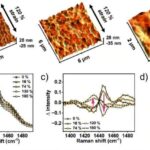Generative AI applications are rapidly gaining momentum across industries, providing intelligent responses to a wide range of queries. Whether for customer support, content generation, or knowledge management, the ability of AI to deliver contextually relevant and accurate answers is critical. One powerful approach that has emerged is Retrieval-Augmented Generation (RAG), which integrates large language models (LLMs) with external knowledge sources to enhance the quality of AI-generated responses. The retrieval component draws on external databases to provide real-world information, while the generation component refines the content into human-like responses.
RAG’s usefulness lies in its ability to extend the capabilities of traditional language models, making them more context-aware and accurate. Applications of RAG span across multiple industries: for example, in customer support, RAG models dynamically access knowledge bases to deliver real-time, accurate answers to inquiries, reducing the need for manual intervention. In corporate environments, RAG helps automate information retrieval from large document repositories, improving response accuracy in knowledge-sharing platforms. It also plays a crucial role in fields like healthcare and education, where it enhances decision-making by fetching relevant research papers or educational materials, which LLMs can summarize for easy understanding.








